As logjam enters fifth day, some farmers un-follow strike to ferry vegetables to APMC in own vehicles; prices likely to drop
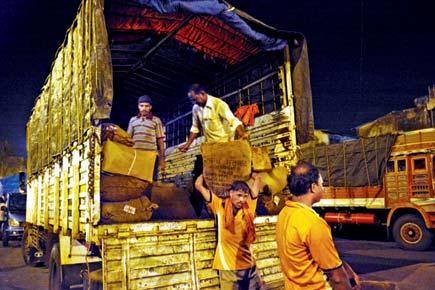
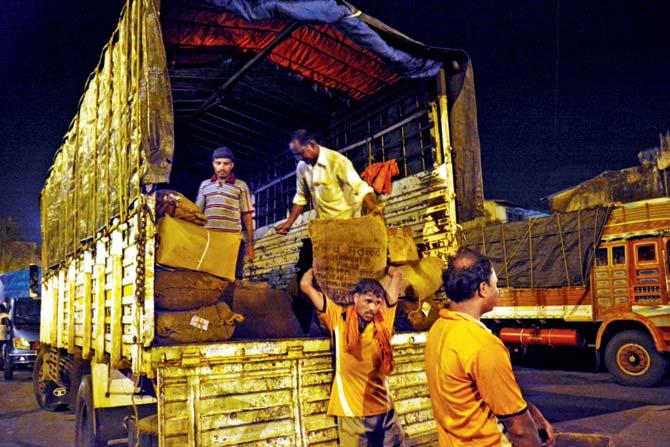
Despite the strike call, vegetables arrived at APMC market early this morning. Pics/ Sneha Kharabe
ADVERTISEMENT
With the farmers' strike entering the fifth day today, some members of the community had no choice but to think about their livelihood and ferry their harvest, which was starting to rot, to Navi Mumbai's APMC market. Last night, most vehicles carrying vegetable produce and milk were escorted by police vans and jeeps. Anticipating stone-pelting incidents, the vehicles took the Pune-Mumbai Express Highway, a safer bet than the old highway.
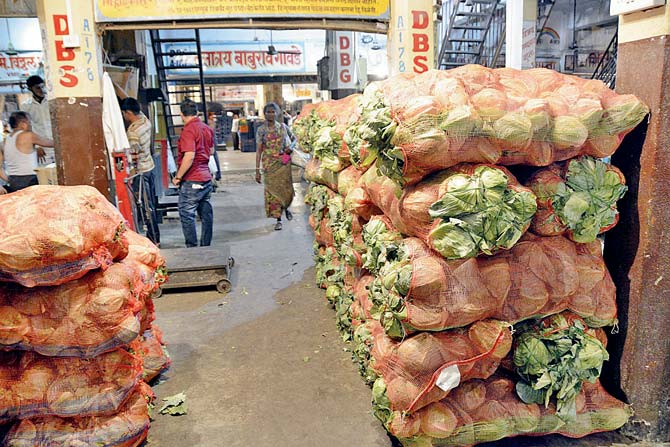
Vegetables that arrived at APMC market this morning; wholesalers say it could lead to drop in prices. Pic/Sneha Kharabe
Farmers who brought their vegetables to the APMC market last night were at least assured that their stock would be sold. Vishal Ghadge, a farmer from Narayan Gaon near Pune, left his village at 8 pm yesterday and reached APMC around 2 am today. "We farm cauliflower. For the last four days, I couldn't reach Mumbai due to the strike. Since our village is connected to the National Highway, where people had gathered following the strike call and were stopping trucks, our vehicles couldn't take that route. Storing the vegetables was also impossible, so we had no choice but to take a risk and bring the produce to APMC today." He added that his jeep was escorted by two police vans that tailed him until the end of Pune-Mumbai Expressway."
Ramdas Khumbarkar, another farmer from Saswad near Pune, cultivates cluster beans and had been waiting with his stock for two days. "On Friday and Saturday, we tried to release the beans for the market, but no transporter was willing to risk sending a vehicle. Today, too, no one came forward. We finally had to take out our own vehicle escorted by the police."
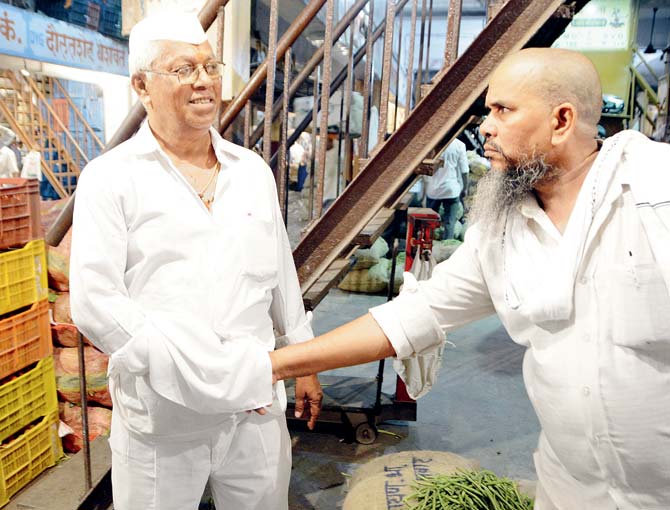
Dasrate Bikaji Sethe, a wholesaler, confirms a deal with a customer at APMC this morning. Pic/Sneha Kharabe
Sanjay Chalkar, a farmer from Sas Godegaon near Amegaon, Pune, un-followed the strike on the fourth day to make his vegetables available in the market. "Allowing our vegetables to rot means more losses for us. We cultivate close to four tonnes of vegetables on an acre of land."
Nyaneshwar Tukaram Chacke, who accompanied Chalkar, claimed that if the strike continued for a few more days, the damage would be irreparable. "I spend almost R1 lakh to cultivate vegetables on 1 acre of land. And I can harvest the produce only once in three months. Just when the time came for us to sell, the strike was called. We know this is our cause, but if we don't sell, we'll suffer. The police helped us bring our trucks to the main highway."
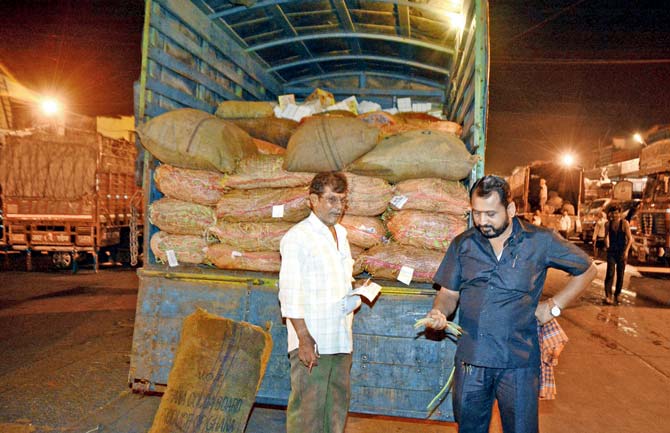
Ramdas Kumbhalkar (right), a wholesaler at APMC
Sandeep Warahdi, a wholesaler from APMC, said the vegetable trucks started trickling in early this morning. "Not a single vehicle had come in the last three days. Predictably, the demand is higher than the supply."
Wholesaler, Dasrate Bikaji Sethe, said the rates are down today. "In the last three days, tomato was selling at R400 for 10kg. Today, it is down to Rs 120 to Rs 150."
 Subscribe today by clicking the link and stay updated with the latest news!" Click here!
Subscribe today by clicking the link and stay updated with the latest news!" Click here!






